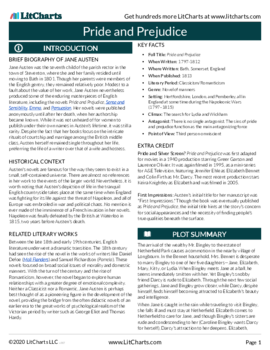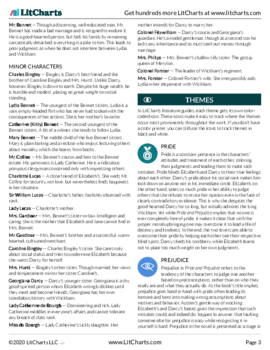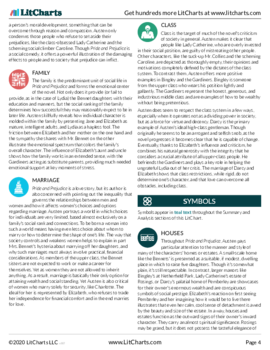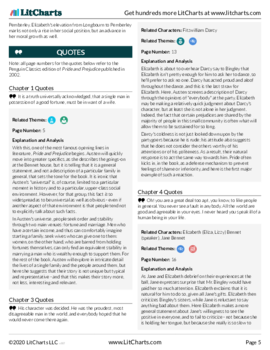- All's Well That Ends Well
- Antony and Cleopatra
- As You Like It
- The Comedy of Errors
- Coriolanus
- Cymbeline
- Hamlet
- Henry IV, Part 1
- Henry IV, Part 2
- Henry V
- Henry VI, Part 1
- Henry VI, Part 2
- Henry VI, Part 3
- Henry VIII
- Julius Caesar
- King John
- King Lear
- Love's Labor's Lost
- A Lover's Complaint
- Macbeth
- Measure for Measure
- The Merchant of Venice
- The Merry Wives of Windsor
- A Midsummer Night's Dream
- Much Ado About Nothing
- Othello
- Pericles
- The Rape of Lucrece
- Richard II
- Richard III
- Romeo and Juliet
- Shakespeare's Sonnets
- The Taming of the Shrew
- The Tempest
- Timon of Athens
- Titus Andronicus
- Troilus and Cressida
- Twelfth Night
- The Two Gentlemen of Verona
- Venus and Adonis
- The Winter's Tale
plus so much more...
-
Assonance
"Work" is overflowing with assonance, which—along with the related devices of alliteration and consonance—calls attention to important moments and generally ramps up the intensity of the poem's language.
In fact, these sonic devices often overlap. Take line 3, where there's /oo/ assonance, /s/ alliteration, and /p/ consonance:
One small mouth, a soup-filled spoon,
The sounds of the line blend together, evoking the simplicity and ease of the woman's life when she was caring for a single child.
As the woman's work intensifies, however, so do the poem's sounds. Listen to lines 7-11, for instance:
[...] gathered barley, wheat, corn.
Twins were born. To feed four,she grafted harder, second job in the alehouse,
food in the larder, food on the table,
she was game, able. [...]Though the poem doesn't follow a steady rhyme scheme, the combination of assonance and consonance creates many full or slant internal rhymes. Here, note the full rhymes between "corn" and "born," "harder" and "larder," and "table" and "able," as well as a slant end rhyme between "corn" and "four."
Again, these emphatic sounds seem to multiply along with the woman's children. In lines 22-23, listen to the shared long /ay/ sounds of "trains," "came," and "planes" (with "trains" and "planes" again creating an internal rhyme). There's then another slant end rhyme between "sound" and "now" in lines 23-24.
The sounds only grow more intense in stanzas 7, where incessant long /ee/ assonance ("TVs, / designed PCs, ripped CDs, burned DVDs) evokes the endless nature of the woman's work. And this sound continues into stanza 8:
she trawled the seas, hoovered fish, felled trees,
grazed beef, sold cheap fast food, put in
a 90-hour week. [...]Note, too, the /f/ alliteration and consonance here ("fish," "felled," "fast food," "beef"), as well as the internal rhyme of "seas" and "trees." Overall, these sounds feel relentless, thereby suggesting humanity's seemingly unstoppable greed and exploitation of the earth.
In the last stanza, /ay/ assonance ("lay in a grave"), /s/ alliteration ("scattered," "swam," etc.), /w/ alliteration ("world, wept") and an internal rhyme between "rain" and "grain" adds intensity to the imagery of the woman sacrificing herself for her children.

|
PDF downloads of all 3053 of our lit guides, poetry guides, Shakescleare translations, and literary terms.
PDF downloads of all 1909 LitCharts literature guides, and of every new one we publish.
Learn more
|

|
Explanations for every quote we cover.
Detailed quotes explanations (and citation info) for every important quote on the site.
Learn more
|

|
Instant PDF downloads of 136 literary devices and terms.
Definitions and examples for 136 literary devices and terms. Instant PDF downloads.
Learn more
|

|
Compare and contrast related themes.
Compare and contrast Related Themes across different books.
Learn more
|

|
Teacher Editions for all 1909 titles we cover.
LitCharts Teacher Editions for every title we cover.
Learn more
|

|
PDFs of modern translations of every Shakespeare play and poem.
PDFs of modern translations of every Shakespeare play and poem.
Learn more
|

|
Advanced search across our collection.
Advanced Search. Find themes, quotes, symbols, and characters across our collection.
Learn more
|

|
Line-by-line explanations, plus analysis of poetic devices for lyric poems we cover.
Line-by-line explanations, plus analysis of poetic devices for every lyric poem we cover.
Learn more
|


For every lyric poem we cover.



Literature Guide PDFs
LitCharts PDFs for every book you'll read this year.



Quotes Explanations
For all 42,208 quotes we cover.





Teacher Editions
Time saved for teachers.
For every book we cover.
Common Core-aligned



PDFs of modern translations of every one of Shakespeare's 37 plays, 154 sonnets, and 3 longer poems.


Plus a quick-reference PDF with concise definitions of all 136 terms in one place.






















